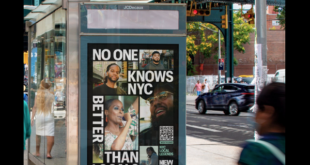LONDON — If you’re a home-based agent who’s in dire need of some extra work space, you’re in luck! The latest trend in shared accommodations has people renting out their home offices and even seats at their kitchen table to those in search of a bit more elbow room.
The rise of self-employment and soaring office costs are fuelling demand for shared office space in metropolitan areas, with a handful of firms renting workspace by the hour, similar to the way Airbnb offers overnight stays. Vrumi, founded in 2015, says it has 5,000 registered users and 120,000 square feet of rentable workspace across the U.K. London-based Spacehop joined the market last year, as did Breather, a four-year-old company that operates in the U.S. and Canada.
It’s the latest development of the so-called sharing economy, where those looking for extra cash are generating income any way they can with the help of the internet and smartphone apps. Space itself has become a commodity, with people renting their driveways to commuters searching for parking, attics to apartment dwellers in need of storage and garden plots to those who want to grow their own tomatoes.
Boxful in Hong Kong promises to declutter your life by collecting and storing unneeded belongings. In Spain, LetMeSpace provides a marketplace to rent out anything from parking spaces to unused storage. Pubs are renting out space in the morning to people looking for peace to work, said Catherine Cottney, manager of trends at business research firm Mintel.
“It’s the final frontier,” Cottney said. “People are recognizing the worth of space and they’re looking to maximize that.”
With an abundance of investors and a computer-literate entrepreneurial population, the U.K. is driving the trend in Europe. In Britain, platform revenues more than tripled to 850 million pounds ($1.1 billion) in the three years through 2015, according to a study by PwC. Peer-to-peer accommodation, which includes shared office space as well as overnight stays like Airbnb, accounted for 27% of that total. Globally, PwC estimates that revenues in the sharing economy were about $15 billion in 2015.
The move toward new workspaces dovetails with changes in the workplace itself.
Cary Cooper, an expert on workplace issues at Alliance Manchester Business School, said he’s surprised the Airbnb model didn’t come to office space sooner, and he believes it will grow as millennials seek flexibility and others seek to make a living.
For example, Lavinia Osbourne started her own financial counselling business in the wake of the global economic crisis but found working at home was too difficult when she needed to meet clients. She struggled to find peace and quiet working in coffee shops and hotel lobbies.
Her solution? Renting a seat at Claire Brynteson’s dining table, as advertised on Spacehop, where filmmakers, entrepreneurs and novelists sit down to work with other creative people. There, for 22 pounds a day, she gets one of eight places at the table, Wi-Fi, and access to the kitchen and bathroom.
Fringe benefits include sliding glass doors that look out over a tree-lined garden and visits from Coco, the family cat.
With file from The Associated Press
Every captain needs a first mate. And at Virgin Voyages, the adults-only cruise line set to debut in 2020, its second-in-command will be none other than travel agents.
You can read more of the news on source
 Travelsmart
Travelsmart



